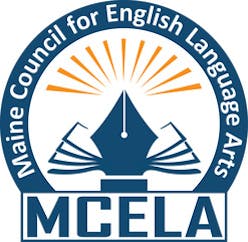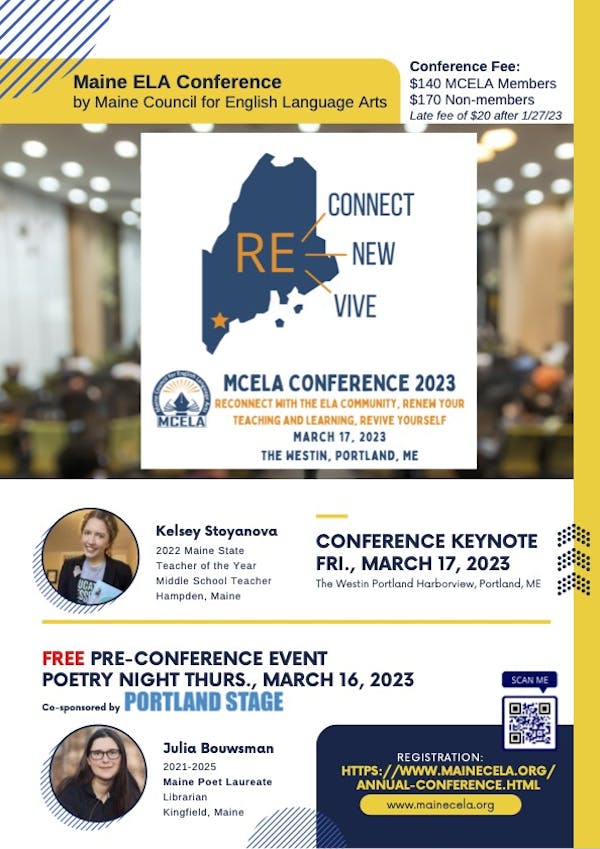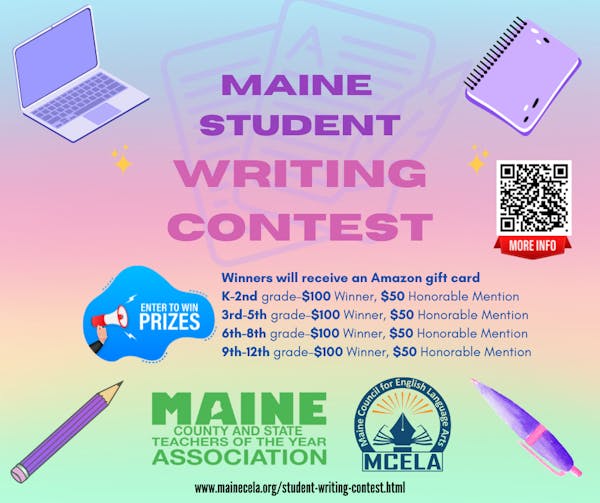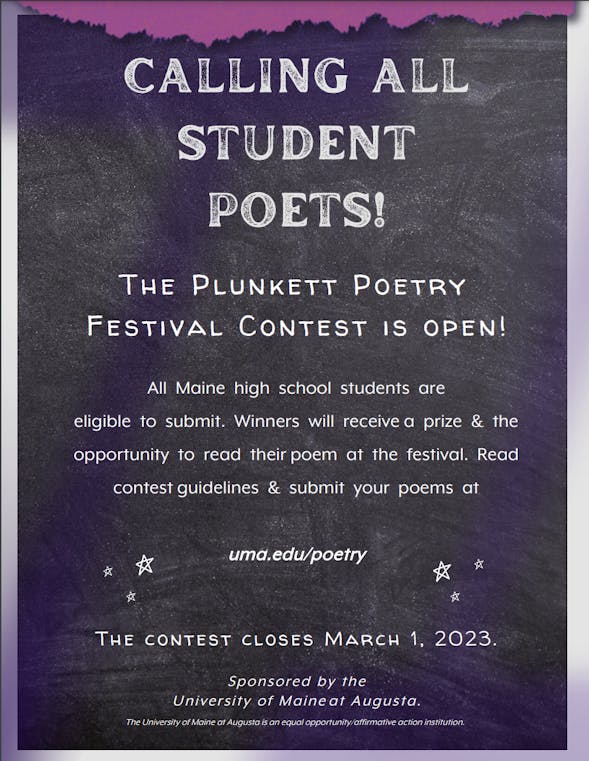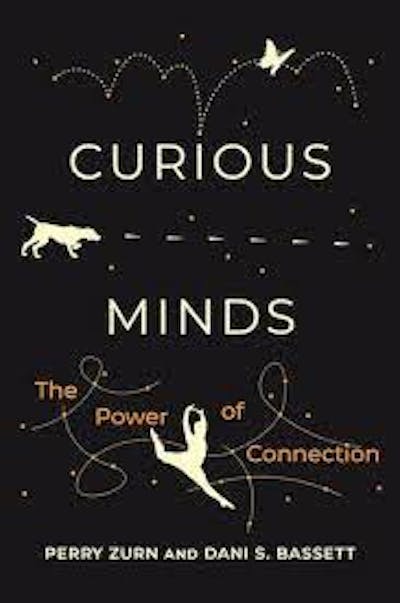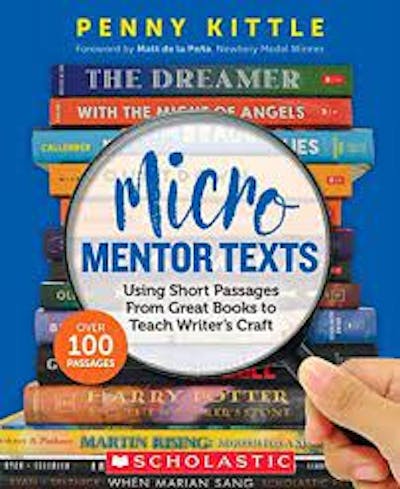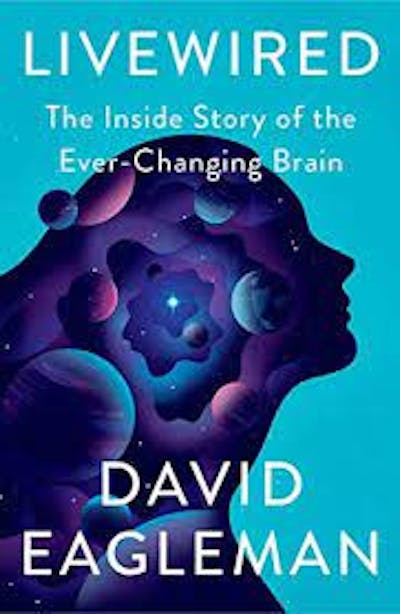MCELA Mattersprograms, resources, connections |
| |
|
 |
January 2023 "Write breathe on your to-do list. Write blink. Write sit and eat. Then cross everything off. How satisfying! Give yourself credit for living." — Maggie Smith, Keep Moving In this newsletter: - Conference and Pre-Conference Poetry Night registration
- Student Writing Contest
- Student Poetry Contest
- Free SEL PD for Maine Educators
- Call for Proposals–UMaine Literacy Connections Conference
- IDEA Collective: Genius and Joy
- IDEA Collective: Learning for Justice–Resisting Dominant Narratives
- IDEA Collective: Navigating Challenging Discussions
- Patti Forster's book stack
A Call to Curiosity: I'm on my second book about curiosity this year. In Curious Minds (see my reading stack at the end of this newsletter), the authors share that "curiosity is a practice of connection: it connects ideas into networks of knowledge, and it connects knowers themselves, both to the knowledge they seek and to each other" (Bassett and Zurn, 123). In a Choose to be Curious podcast episode, Zurn explains this idea further: "Historically, philosophically curiosity is defined as the capacity to grasp information. We've redefined curiosity as a practice of connection...How connecting ideas and people to one another crafts this kind of knowledge base that we share but also we can second guess or can transform or undo together as well. This emphasizes less what each of us might own as far as pieces of knowledge than what all of us might be doing with what we know and share." When I read these texts, I realized why I've been so fascinated with learning about curiosity recently. Curiosity is about connection and "connection" is my word for this school year! Originally, I selected connection to focus on making more human connections, but I love this idea of curiosity connecting both people and ideas, building a network. That's what we've been trying to do at MCELA this year, build a bigger network of people and ideas. We hope you'll join us in Portland at our conference in March to be curious with us–to reconnect, renew, and revive. There's so much to learn and unlearn from those willing to share. Stay curious, my friends,
Patti Forster, MCELA President maine.ela@gmail.com MCELA website: mainecela.org |
|
|
| Register now to save your spot! In-person conference March 17, 2023 Pre-Conference Poetry Night March 16, 2023 Portland, ME |
Deadline January 13, 2023! |
Calling all Maine high school and University of Maine System student poets! The annual Plunkett Maine Poetry Festival High School Student Poetry Contest is now open. The deadline for submission is March 1, 2023.
Students may submit their work using the following guidelines: |
- Contestants may submit up to 3 pieces of original work.
- Please submit a SEPARATE entry for each piece of work.
- Each poem may have a maximum of 52 lines.
- Submissions will be judged blind, so contestants should please make sure their name is not present in their submitted poem document.
- Prior Plunkett Poetry Contest winners are not eligible to participate.
- Poems of all themes and styles are welcome.
|
First, second, and third-place winners will be selected and awarded prizes. In addition, winners will be invited to read their work at the Plunkett Poetry Festival which will be held in April 2023.
Please email contest-related questions to ellen.taylor@maine.edu. |
|
Free PD for Maine Educators |
Upcoming Programs - Winter / Spring 2023 Thanks to the generosity of our philanthropic supporters, Hurricane Island Outward Bound School is pleased to offer the following professional development opportunities FREE OF CHARGE for Maine educators.Module 1: Boosting SEL in the Classroom Module 2: The Social Emotional Toolkit Module 3: All Learning is Social and Emotional All sessions take place from 4:30-7:00 p.m.
Cost: FREE for Maine educatorsParticipants will receive a Certificate for Contact Hours for the individual module hours listed below, or a total of 21 hours upon completion of all three. Sign up for one track or combine them for greater impact! Colleagues who team teach or share student cohorts are encouraged to participate together. |
| |
|
Call for Proposals–UMaine Literacy Connections Conference |
At last! We're Back! We are pleased to announce that the Literacy Connections Conference is returning LIVE on UMaine's campus on Friday, May 12th! The theme for this year's conference is: No Bad Days!: Returning to the Joy of Teaching Proposals are now being accepted for presentations for early childhood through adult literacy. (Click the yellow button below for the proposal form.) Watch for details in the coming months. We hope to see you there! Katherine (Kathie) WingAdministrative Specialist College of Education and Human Development University of Maine |
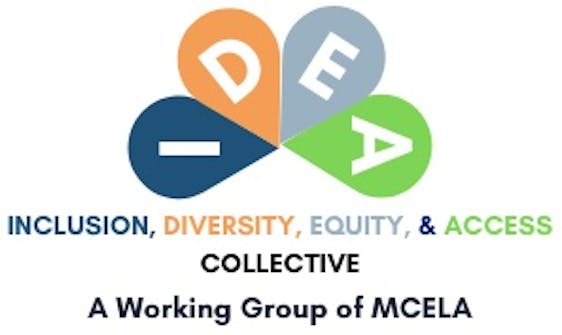 |
Genius & Joy In the latest edition of NCTE’s Council Chronicle, Gholdy Muhammad discusses the importance of cultivating genius and joy in our schools. Muhammad writes: “We can see a lot of progress between writing the right standards and pursuits and goals for learning, selecting the right topics and texts, and then really reflecting on what kind of child we hope for our schools to nurture and cultivate.” NCTE members have free online access to the article “How To Find - and Teach - Joy in Our Classrooms.” However, NCTE provides free access to Muhammad’s piece “Cultivating Genius and Joy in Education through Historically Responsive Literacy” in the January edition of Language Arts. To learn more about Muhammad’s work related to equity in curriculum design, check out her first book Cultivating Genius: An Equity Framework for Culturally and Historically Responsive Literacy. Also, you might be interested in her forthcoming book, Unearthing Joy: A Guide to Culturally and Historically Responsive Teaching and Learning. Learning for Justice - Resisting Dominant Narratives In this hostile learning environment created by censorship and book bans, these LFJ book reviews encourage us all to keep reading—and writing—to counter the narratives that have historically excluded diverse perspectives. Navigating Challenging Discussions When teachers want to engage students in discussions about contentious topics, they are often confronted with how to manage civil discourse. NCTE recently published a new guide, Reading, Writing, & Raising Voices: The Centrality of Literacy to Civic Education. This guide highlights the connection between literacy and civic discourse. If you seek some concrete tools for yourself or your colleagues, Learning for Justice offers their guide Civil Discourse in the Classroom to provide teachers and students with tools of argumentation and discussion. Looking for a deeper dive into handling challenging topics? Learning for Justice provides this online course “Youth in Front: Understanding & Supporting Student-Led Activism.” In one session, participants learn effective strategies for asking students to support their stance on an issue. Teachers value these “in-the-moment” approaches to handle potentially controversial and divisive topics.
|
|
|
Here's what Patti Forster, MCELA President, is reading right now: |
|
|
Curious about something? Google it. Look at it. Ask a question. But is curiosity simply information seeking? According to this exhilarating, genre-bending book, what's left out of the conventional understanding of curiosity are the wandering tracks, the weaving concepts, the knitting of ideas, and the thatching of knowledge systems—the networks, the relations between ideas and between people. Zurn and Bassett—identical twins who write that their book “represents the thought of one mind and two bodies”—harness their respective expertise in the humanities and the sciences to get irrepressibly curious about curiosity. Traipsing across literatures of antiquity and medieval science, Victorian poetry and nature essays, as well as work by writers from a variety of marginalized communities, they trace a multitudinous curiosity. They identify three styles of curiosity—the busybody, who collects stories, creating loose knowledge networks; the hunter, who hunts down secrets or discoveries, creating tight networks; and the dancer, who takes leaps of creative imagination, creating loopy ones. Investigating what happens in a curious brain, they offer an accessible account of the network neuroscience of curiosity. And they sketch out a new kind of curiosity-centric and inclusive education that embraces everyone's curiosity. The book performs the very curiosity that it describes, inviting readers to participate—to be curious with the book and not simply about it. ~MIT Press |
| At a time when students’ attention is being pulled in many directions, writing expert Penny Kittle shows us the power of helping them to focus in and communicate clearly. She does that through the study of “micro mentor texts,” excerpts from acclaimed books, and the decisions authors make to craft those texts so they deeply engage readers. Her book includes dozens of short texts and mini-lessons based on them―as well as many practice opportunities for students and demonstration videos for you. ~Scholastic Press |
| What does drug withdrawal have in common with a broken heart? Why is the enemy of memory not time but other memories? How can a blind person learn to see with her tongue, or a deaf person learn to hear with his skin? Why did many people in the 1980s mistakenly perceive book pages to be slightly red in color? Why is the world’s best archer armless? Might we someday control a robot with our thoughts, just as we do our fingers and toes? Why do we dream at night, and what does that have to do with the rotation of the Earth?
The answers to these questions are right behind our eyes. The greatest technology we have ever discovered on our planet is the three-pound organ carried in the vault of the skull. This book is not simply about what the brain is; it is about what it does. The magic of the brain is not found in the parts it’s made of but in the way those parts unceasingly reweave themselves in an electric, living fabric.
In Livewired, you will surf the leading edge of neuroscience atop the anecdotes and metaphors that have made David Eagleman one of the best scientific translators of our generation. Covering decades of research to the present day, Livewired also presents new discoveries from Eagleman’s own laboratory, from synesthesia to dreaming to wearable neurotech devices that revolutionize how we think about the senses. ~Amazon |
|
|
| stay tuned via social media |
| |
|
| |
